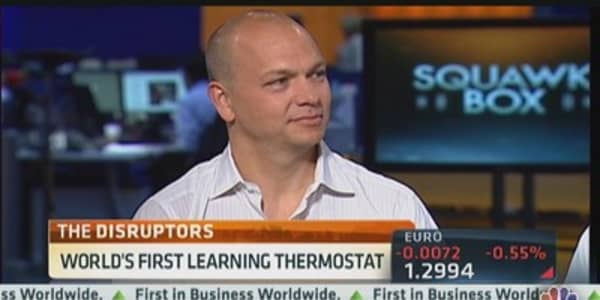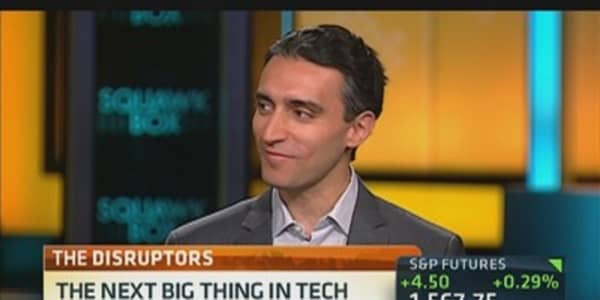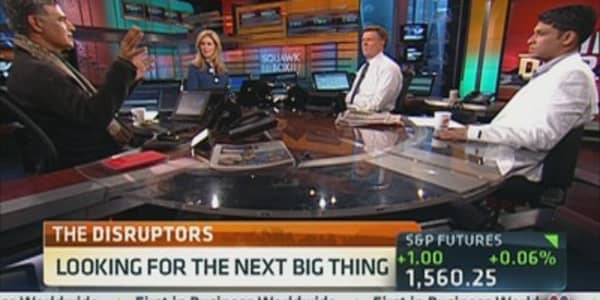10 Disruptors You've Never Heard of
Disruption isn't always obvious. In fact, it can sometimes fly under the radar for years, establishing a solid base before upending the ways certain industries do business.
That's understandable, given the changing business models many startups go through. But just because a business isn't on the tip of everyone's tongue doesn't mean it's not primed to change the way things are done.
Not every company that's about to shake up (or is in the process of shaking up) its respective industry is a household name just yet, but here are 10 we think you could be very familiar with in the near future.
Airbnb
It costs travelers plenty just to get to their destinations.The steep cost of accommodations just increases the pain of being on the road. Airbnb offers an alternative, letting people rent out rooms in their house or properties they're not using as an alternative to high-priced hotels. Travelers save hundreds of dollars.The renters get to pocket some extra income.
The company currently offers rooms in 30,000 cities in 192 countries. It has also raised nearly $91 million in funding.The biggest hurdle to its success seems to be concerns with safety and the legality of the rentals in some cities.
Coffee Table
The catalog space is an expensive one. Printing and mailing costs are exorbitant and retailers never know who's looking at their books. Coffee Table aggregates the online "look books" of companies ranging from Macy's and L.L. Bean to Signals into one place for iPad users.
The company's 170 retail partners pay when users open their catalog. Catalog company RR Donnelly is Coffee Table's sole financial backer -- investing $2.5 million. (That's a move that makes sense, given that the catalog market generates $270 billion in sales each year.)
Dwolla
Service fees charged by credit card companies are the bane of small businesses. Dwolla is hoping to do away with those. The company links to users' bank accounts, transferring money to merchants when they make a purchase.
The benefit for users is they don't have to worry about high bank fees. (Dwolla only charges 25 cents for transactions over $10 – and lower amounts are free.) Merchants don't have to pay anything to the company for the transaction, increasing their profit margins. All that's needed is an Internet connection.
Lending Club
Lending Club is trying to bring crowd funding to the mainstream world – and shake up the traditional lending industry in the process.
The company connects people who want to borrow cash with those who want to lend it – which could help some people escape high interest rates for credit card or student loan debt. Life to date, it has originated over $1 billion in loans. And speaking at the LeWeb conference in Paris earlier this month, CEO Renaud Laplanche said the company is planning to go public "in the next few years."
Lytro
How many pictures have you shot, only to realize too late that they're out of focus? Using a technology called Lightfield capture, Lytro's camera lets people shoot first, then focus later.
The cameras, which currently run from $400 to $500, are surprisingly easy to manage. Simply take your pictures, import them to your PC, then choose a focal point with a click of the mouse. And the disruption doesn't stop at the home market. Hollywood is already showing interest in Lytro's technology for film making as a possible way to bring budgets down on small films.
MakerBot
Manufacturing hasn't seen a significant shake up in years, but MakerBot, whose 3D printers allow users to create 3D models of just about anything, could give it a jolt.
These days, the printers are still fairly expensive (around $2,200) and are best used to make children's toys. But the technology is improving fast, and it's now able to replicate more intricate designs, which could let people bypass the store to simply print out new items at home. VCs believe in the idea. Makerbot has collected $10 million in funding so far.
Nest
This thermostat keeps track of your temperature habits, learning when you prefer it warmer or cooler in your home – and adjusts temperatures accordingly. And thanks to an on-board motion sensor, it can turn the heat or air conditioning down automatically if no one is home.
The device made its debut in January and is already being sold nationally by Lowes and other retailers – and could have a big impact on home heating and cooling bills.
UBeam
As people become more and more gadget focused, keeping those items charged is becoming a bigger issue. A house full of cords is ugly – and hotel rooms rarely offer enough plugs.
Ubeam aims to let you charge several devices wirelessly, using ultrasonic waves. The system is still in the prototype phase, though it does have a working model. Michael Arrington called the device "the closest thing to magic I've seen in a long time." And the company has picked up $750,000 in seed funding.
Uber
If you live in or near a major metropolitan area, you know how maddening it can sometimes be to get a taxi, especially in bad weather or when you're running late. Uber eliminates that pain, letting you use your mobile phone to summon a private sedan to your location (determined via your phone's GPS) in minutes. No cash is exchanged. The trip is charged to a credit card on file with the service.
That's a service that could greatly disrupt existing public transportation models.The company already has a presence in several U.S. and overseas cities and is expanding rapidly. Life to date, it has raised just shy of $50 million in funding
ZocDoc
Getting an appointment with a doctor – much less a specialist -- often takes weeks. ZocDoc could revolutionize that aspect of medicine, though, with its matching engine that lets people book last-minute appointments in their neighborhood with doctors, dentists, specialists and more.
The free service already covers nearly 20 metro areas, including New York, Los Angeles and Seattle – and has banked some $95 million in funding.




